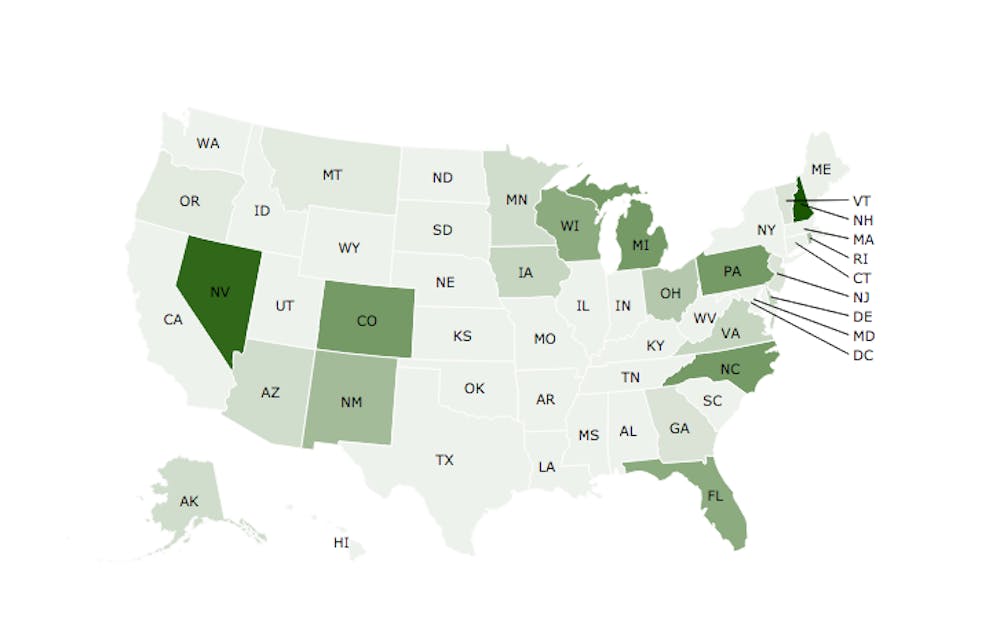Where are you registered to vote for this year’s election? If you are a Republican from Maryland or a Democrat from Alaska, your vote really won’t tip the presidential scale. Here in North Carolina, however, the polls are not so preemptively swayed.
During the election cycle, certain states tend to always vote in one way. Following recent trends, most of New England votes Democrat, while states such Oklahoma and Wyoming tend to vote Republican. Voting for the opposite party in these states is not as influential as it is in battleground states such as Iowa, Ohio or North Carolina, where the polls are much more divided. Candidates tend to spend more time campaigning there, and according to an article published by Columbia University, voters have six times greater chance of determining the presidential election result in battleground states.
Christopher Johnston, assistant professor of political science, explained that it is a good idea to change your registration to a different state under certain circumstances. If the polls are close between the candidates and if the state has a high number of electoral votes that can actually sway the election, it would be more effective to vote there.
“If you have social preferences in the sense that you care about other people in addition to yourself and close others, and you believe the candidates differ significantly in terms of the utility they will provide to the average person—or the average person within a large group you particularly care about—then you should try to vote in a [different] state,” Johnston said.
Since the start of the academic year, volunteers have been asking students to change their voter registration to North Carolina—a prominent battleground state with 15 electoral votes.
Sophomore Yash Bajaj, a vice president of Duke Democrats, was at Marketplace Sept. 15 advocating for people to change their registration. He explained that registering to vote is critical to being politically engaged and also noted the ease of the whole process.
“Changing your voter registration is pretty easy. You don’t have to cancel your previous registration; you just can’t vote in both states," Bajaj said. "It’s a very simple process to register in North Carolina if you want to or if you don’t want to register in North Carolina, we can help get your absentee ballot from your home state.”
Changing registration at Duke only requires students to fill out a form asking for their name, age, address, social security number and their home state. Once the form is processed, students can vote in North Carolina. Students can register if they will be 18 years old by the time of the election.
Freshman Cara Peters changed her voter registration from Florida to North Carolina because she felt it was easier and would mean more.
“Absentee voting can be pretty difficult, so when I heard that I could just vote on campus, I decided to register here, where my vote would also make more of a difference,” she said.
Bajaj also explained that Duke students can access the early voting site that will be present on campus as the election nears.
According to the statistical analysis website FiveThirtyEight, North Carolina has a nine percent chance of tipping the presidential election as of Sept. 19. FiveThirtyEight also reported that Republican nominee Donald Trump leads in North Carolina at 55.0 percent.
Get The Chronicle straight to your inbox
Signup for our weekly newsletter. Cancel at any time.

